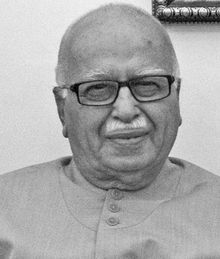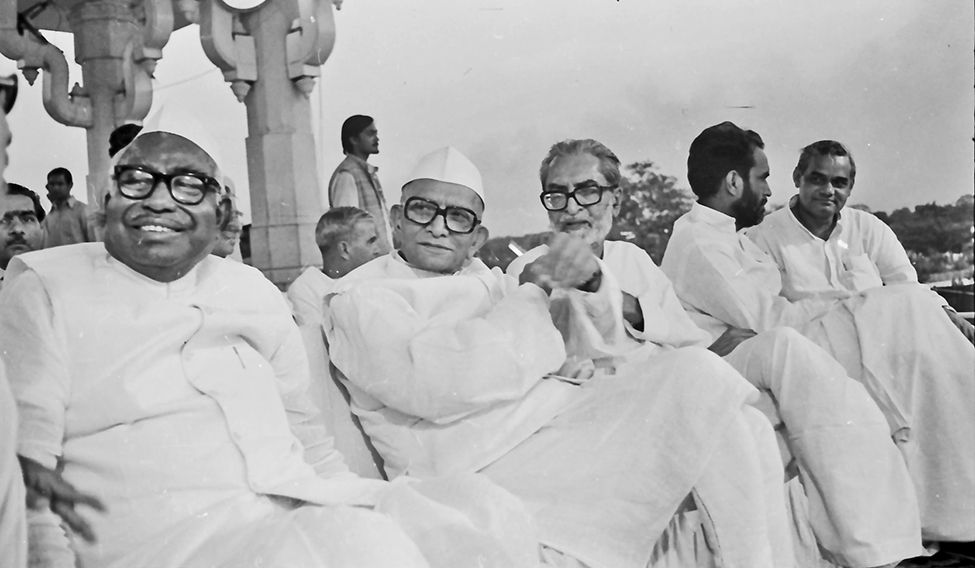
Many political leaders believe strongly in astrology, but I have generally kept my distance from soothsayers. In 1975, the national executive of the Jana Sangh met in Mount Abu. I was relaxing after lunch and casually asked Dr Vasant Kumar Pandit, the executive member from Maharashtra, “Panditji, aap ke nakshtra kya kehte hain?” (Panditji, what do your stars predict?)
Dr Pandit was a renowned professional astrologer with a PhD in the subject. My reference was to two things that happened in June 1975―the Congress was trounced in the Gujarat assembly elections, and the Allahabad High Court had declared prime minister Indira Gandhi guilty of electoral malpractices.
Panditji replied that he was intrigued by his own assessment: “My reading of the stars tells me that we are headed for a two-year exile.” I was perplexed. Everything was going against the Congress. The prime minister had lost her membership in Parliament and her party had lost the election in Gujarat. Where did this exile come from? But, before June ended, our exile, in the form of 19 months of imprisonment, had actually begun!
The storm broke when I was in Bengaluru to attend a joint select committee of Parliament on legislation against defections. At around 7:30am on June 26, I received a phone call saying that at around 3:30am, Jayaprakash Narayan, Morarji Desai, Raj Narain and others were arrested. At 8am, I tuned in to All India Radio’s main news bulletin to check for updates. Indira was on air. The president had proclaimed a state of Emergency under Article 352 of the Constitution to meet the threat of internal emergency, she declared, and went on to explain how the heavens would have fallen on June 29, if the decision had not been taken.
The Lok Sangharsh Samiti had decided the previous day to launch a satyagraha from June 29, to demand Indira’s resignation in the interest of what Justice V.R. Krishna Iyer had described as “political conventions and democratic dharma”.
We were mobilising public opinion against the external emergency clamped before the 1971 war, which was still in force. Instead of revoking that, the Indira Gandhi government had unleashed a far more draconian rule in India.
Why did she do it? Looking back, it does seem the Emergency rule was an exercise in self-preservation, the threat to which was first perceived when her 1971 election to the Lok Sabha was challenged in the Allahabad High Court. There is now clinching evidence that her effort to undermine the judiciary’s independence, which began in 1973, had its origin in her desperation to get a favourable verdict in the electoral malpractices case.
Her government appointed A.N. Ray as chief justice of India, superseding three senior judges. It was in line with the Congress theme of “committed judiciary”. Ray was a close relative of Siddhartha Shankar Ray, then the chief minister of West Bengal, who would two years later become her most trusted legal adviser on the suppression of democracy.
Apart from the Allahabad High Court hearings on the petition about her corrupt electoral practices, she also had to protect her government from mushrooming corruption scandals.
On the eve of the Emergency, Indira was also at the nadir of her popularity graph. On the other hand, the opposition had closed ranks under the inspiring leadership of Jayaprakash Narayan. The genesis of the Emergency lay in this situation. The so-called conspiracy “to create internal disturbance” was also phoney.
Tens of thousands of political activists belonging to the opposition were dubbed as threats to national security and were put behind bars under the Maintenance of Internal Security Act.
Democracy was throttled. Even during the British Raj, the press was not subjected to censorship as was done during the Emergency. Shankar’s Weekly, the only cartoon weekly in the country then, wound up. There is not a mention of the word Emergency in its last editorial, titled ‘Farewell’. But, there can scarcely be a more devastating indictment of the Emergency than that edit.
Some papers protested the censorship of the press by leaving the front page and the edit page blank. Some publications had their say in a veiled way. The Illustrated Weekly carried an article titled Bhagat Singh and the Terrorist Movement. Even a casual reader could not have missed the meaning. The comment was: The present government has been behaving worse than the British government. The warning: If you do not leave safety valves open, you will be inviting terrorism.
The sins of those months are not Indira’s alone. In retrospect, it would be deemed the collective guilt of all Congressmen―those who supported her policy actively, and those who acquiesced in it by remaining silent.
Bhishma and Drona were as much responsible for the outrageous disrobing of Draupadi as were Duryodhana and Dushasana.







